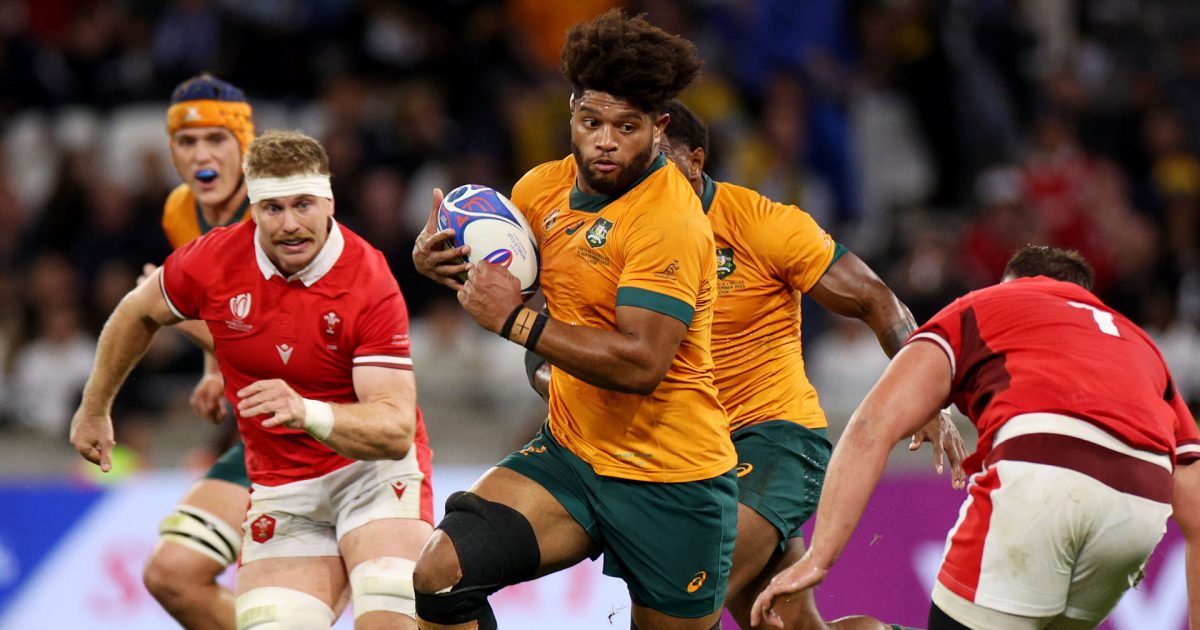World Cup rematches inbound as Wallabies and Wallaroos release 2024 schedules

The Wallabies have the chance to exact some Rugby World Cup revenge when they host Wales in two Tests within a week this year.
Clashes with Wales in Sydney on July 6 and in Melbourne the following Saturday were revealed on Friday as part of the Wallabies’ seven-Test home program for 2024.
The Welsh humiliated Australia 40-6 in France last September in the Wallabies’ worst-ever World Cup defeat.
The drubbing, which followed a first loss to Fiji in 69 years, consigned the Wallabies to their first pool-stage exit ever at a World Cup.
Newly-crowed John Eales Medallist Rob Valetini this week admitted the embarrassing World Cup campaign under former coach Eddie Jones would drive the Wallabies in 2024.
Under new mentor Joe Schmidt, Australia will also host fellow World Cup pool rivals Georgia at Sydney’s Allianz Stadium on July 20.
Brisbane, Perth and Sydney will then stage Rugby Championship clashes with the world champion Springboks and the All Blacks in August and September.
The Wallaroos will also open their 2024 home Test campaign in Sydney, against Canada on May 11.
The Australian women’s team will also play home Tests against the USA, Fiji and New Zealand this year.
“We’re thrilled to announce a massive international season for the Wallaroos and the Wallabies on home soil with 10 Tests in total across the two teams,” said Rugby Australia chief Phil Waugh.
“It’s particularly pleasing to know we are going to host Test matches in the four largest cities in Australia as we continue to invest in making the game more accessible to more Australians.
“We’re continuing to honour our commitment to grow the women’s game, with the Wallaroos set to play their highest number of Tests on home soil in a calendar year in 2024 against world-class oppositions at first-class stadiums.
“The Wallabies will be looking for a reset this year, with Joe Schmidt to lead them against four high-quality Test opponents on home soil, including Georgia who we look forward to welcoming to Australia for the first time.”
Wallabies’ 2024 home Tests:
– v Wales, Allianz Stadium, Sydney, July 6
– v Wales, AAMI Park, Melbourne, July 13
– v Georgia, Allianz Stadium, Sydney, July 20
– v South Africa, Suncorp Stadium, Brisbane, August 10
– v South Africa, Optus Stadium, Perth, August 17
– v New Zealand, Accor Stadium, Sydney, September 21
Wallabies’ away Tests:
– v Argentina, August 31
– v Argentina, September 7
– v All Blacks, September 28
– v England, November 9
– v Wales, November 16
– v Scotland, November 23
– v Ireland, November 30
Wallaroos’ 2024 home Tests:
– v Canada, Allianz Stadium, Sydney, May 11
– v USA, AAMI Park, Melbourne, May 17
– v Fiji, Allianz Stadium, Sydney, July 6
– v New Zealand, Ballymore, Brisbane, July 14.










































































